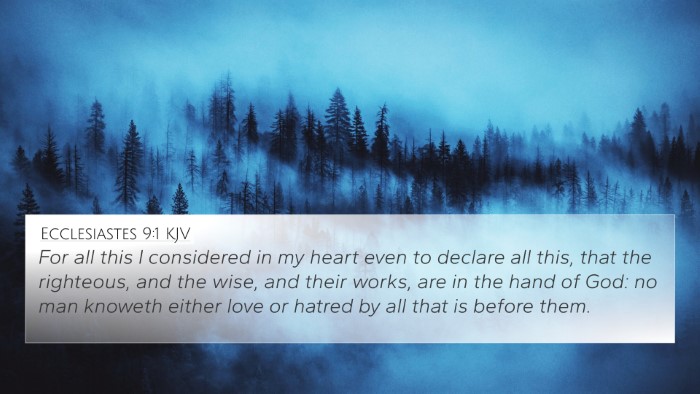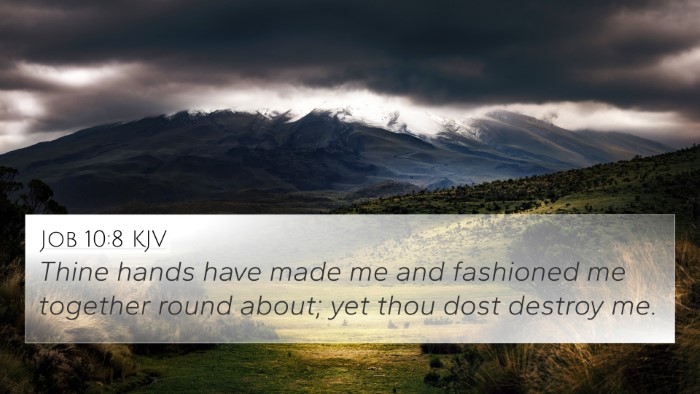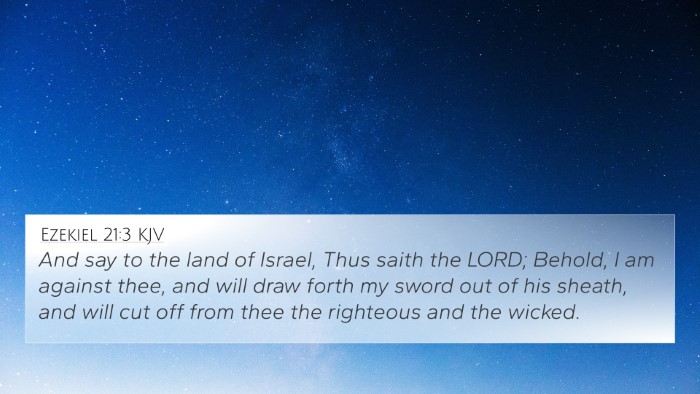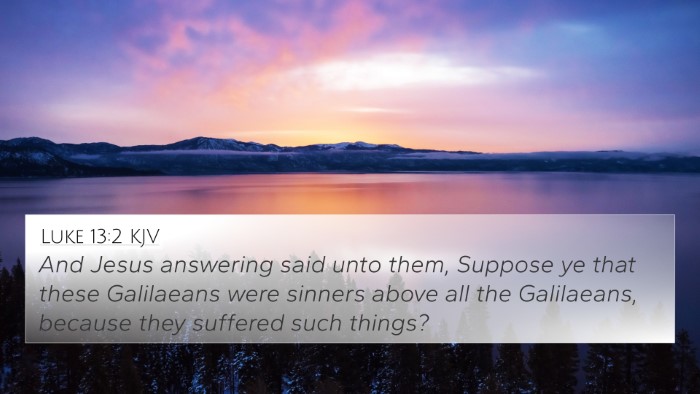Understanding Job 9:22
Verse: "It is all one; therefore I said, He destroyeth the perfect and the wicked." (Job 9:22)
Summary of Job 9:22
This verse presents a profound observation from Job amid his suffering. It underscores the perception that both the righteous and the wicked face similar fates under God's sovereignty. Job expresses a feeling of helplessness, wrestling with the incomprehensibility of divine justice and human suffering.
Commentary Insights
- Matthew Henry:
Henry emphasizes that Job speaks from a place of despair, acknowledging that mortality affects all, regardless of moral standing. He notes that Job does not see distinctions in divine treatment, suggesting a theological inquiry into the nature of God's governance.
- Albert Barnes:
Barnes highlights the philosophical aspect of Job's realization that earthly tribulations often do not discriminate by virtue. He reflects on the general observation of life that sometimes the just suffer alongside the unjust, challenging the reader to think deeply about the nature of God’s justice.
- Adam Clarke:
Clarke further explores the idea that Job feels a sense of futility in distinguishing between the righteous and the sinful in their ultimate ends. He points out that this realization reveals Job's struggle with the justice of God, prompting readers to seek answers to life's inequities.
Thematic Connections
Job 9:22 offers rich thematic connections throughout scripture, prompting a deeper exploration of divine justice, human suffering, and the enigmatic nature of life. Below are suggested thematic Bible verse connections:
Related Cross-References
- Ecclesiastes 9:2: "All things come alike to all: there is one event to the righteous, and to the wicked..."
- Psalm 73:3-5: "For I was envious at the foolish, when I saw the prosperity of the wicked."
- Isaiah 57:1: "The righteous perishet, and no man layeth it to heart: and merciful men are taken away..."
- Matthew 5:45: "...for he maketh his sun to rise on the evil and on the good..."
- Acts 14:16: "...who in times past suffered all nations to walk in their own ways."
- Romans 2:6: "Who will render to every man according to his deeds."
- Revelation 20:12: "...and the dead were judged out of those things which were written in the books, according to their works."
Comparative Bible Verse Analysis
Engagement with Job 9:22 allows readers to examine various perspectives on suffering and divine justice across the Bible. This comparative analysis can enrich one's understanding of similar themes:
Connections Between Bible Verses
- Ecclesiastical Reflections: As seen in Ecclesiastes, which addresses the futility in human endeavors and life's arbitrary nature, paralleling Job's lament.
- Prophetic Voices: The prophets offer similar themes where God's judgement seems ambiguous but ultimately serves divine purposes.
- Gospel Teachings: Jesus’ teachings exemplify how moral distinctions are not always evident in worldly circumstances, reinforcing Job's perspective.
Tools for Bible Cross-Referencing
Utilizing cross-references can enhance the study of Job 9:22. Here are some tools and approaches:
- Utilize a Bible concordance to find parallel verses.
- Explore a cross-reference Bible study guide for thematic exploration.
- Engage in Bible chain references for in-depth studies on suffering.
- Employ comprehensive Bible cross-reference materials to understand complex themes.
Inter-Biblical Dialogue
Job 9:22 invites readers into a broader dialogue within scripture. Christians can find insights into personal suffering and divine justice by linking Job's accounts with New Testament teachings on endurance and faith. Consider how Paul addresses suffering in Romans and 2 Corinthians, reflecting the continuity of biblical themes across both Covenants.
Conclusion
Job 9:22 serves as a compelling reminder of the complexity of life, justice, and faith. The connections between this verse and others throughout the Bible offer the faithful pathways to deeper understanding and holistic interpretation.






